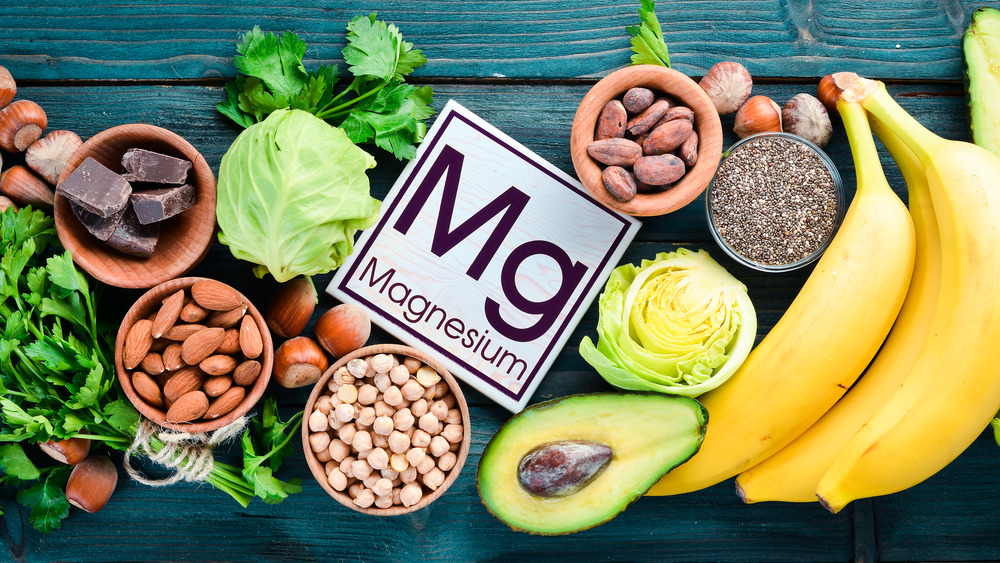The Real Reason Magnesium Can Help You Sleep
If you're having trouble getting a good night's rest, chances are you've looked into just about everything that can help you grab some shut-eye. If lifestyle changes like following a bedtime routine or cutting out late-afternoon coffee aren't working, your magnesium levels might be to blame.
According to The Sleep Doctor, magnesium is an essential mineral that is responsible for nearly 300 processes in your body. While magnesium is important for critical functions like heart and bone health, it also helps in transporting electrolytes, regulating glucose levels, and converting food into energy. Even with enough sleep, a magnesium deficiency could still result in you feeling sluggish, since your body just functions less efficiently without it.
Magnesium also plays an important role in the regulation of melatonin, which determines the sleep-wake cycle of your body (via Healthline). Additionally, ample magnesium levels activate the neurotransmitters in your brain responsible for promoting relaxation and deactivating the fight-or-flight response.
How can I make sure I'm getting enough magnesium?
Since the body doesn't produce magnesium, monitoring your magnesium intake is critical for optimal health and restful sleep (via Psychology Today). Most people are at least somewhat deficient in magnesium, although critical deficits are rare. However, hold off before you hit "add to cart" on those magnesium supplements. Although magnesium pills, powders, and supplements are "generally well tolerated" by adults according to Psychology Today, they can result in bloating, diarrhea, nausea, and low blood pressure.
Fortunately, it's pretty easy to get magnesium from your diet — and food-based magnesium is often tolerated better than a supplement. It's also easy to derive magnesium from both animal and plant-based sources. According to The New York Times, leafy greens, legumes, seeds, and whole grains are excellent sources. In particular, soy milk, avocado, peanut butter, bananas, spinach, and yogurt are easy and nutritious ways to incorporate more of this mineral into your diet naturally (via Women's Health).


